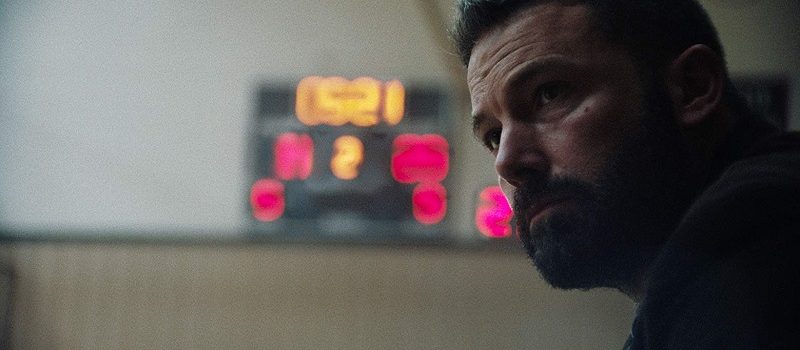There is something about a solid sports drama that has always compelled. It’s easy to see why, because the athletics at the heart of these films is merely a dramatic way in to explore something much more profound. That is certainly the case with the Ben Affleck starring basketball-centric The Way Back. The actor, in a role that had to hit close to him, portrays an alcoholic who reluctantly accepts a head coaching position at the Catholic high school where he was a star player. In the process of trying to turn around this losing program, Affleck’s Jack Cunningham may just save himself. Maybe.
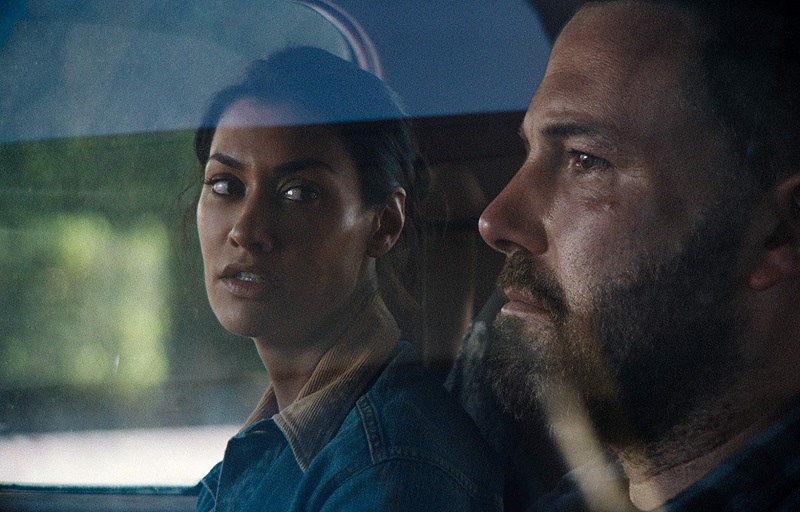
It is impossible to separate the sports landscape of The Way Back from the addiction aspect, they each feed off each other—impeccably captured within Brad Ingelsby and Gavin O’Connor’s script. The pair (O’Connor is also the film’s director) crafted a script that does something extraordinary. The story hits the right notes and is constructed with storytelling precision. Just when the alcoholism aspect starts to wash over us to the point where it becomes a concern, a basketball scene follows, whether game or practice or even simply characters discussing the art of basketball, there is a ebb and flow to The Way Back that feels as smooth as the most artistic alley-oop. That cannot be stressed enough as it is largely why the film is so effective in its role as a sports movie and one about addiction and recovery.
As we’re introduced to Jack, he lives and works in the south bay of Los Angeles. The construction worker clearly has a routine. He awakes, takes a shower (open beer right next to the shampoo) and heads to work. After his vocational demands are completed, he heads to his local watering hole and knocks a few back. Sometimes, it’s quite a few and he has to be helped home by a patron who at one point, utters something profound, “I used to help your dad home the same way, Jack.” One thing we know about addiction, is it can be hereditary. Affleck, in real life, has stated that his father was an alcoholic and that is one aspect of the story that must have rang true for the Boston native.
The phone call from the priest who heads the Catholic high school that was his alma mater, comes soon after the film commences. In a terrific scene that proceeds his accepting the position, Jack is drinking beer after beer after beer as he “rehearses” his phone call to the priest to let him know he won’t be taking the job. This goes on until he is passed out. The next scene, he’s walking into the gym to meet his team as they are in the middle of practice. Coach Cunningham was tapped midseason and those first few games, he seems to be coasting. At some point, the viewer is waiting for something to happen that shakes Jack up and as they say, “gets his head in the game.” The way it occurs is so concurrently organic, heartwarming and wholeheartedly believable.
Something else that is natural is the way in which Jack’s alcoholism rears its head and then buries it in the sand. So often in films, addiction is portrayed as almost an all or nothing experience. That is so not what it is like in life. There are periods where someone is doing well and then something will trigger the addict and everything else just goes right out the window. This is handled in the most raw ways in O’Connor’s film and it is a huge credit to all those behind the scenes for taking the time and portraying the struggle as raw and real as it warrants for all those people who have nothing left except living day to day.
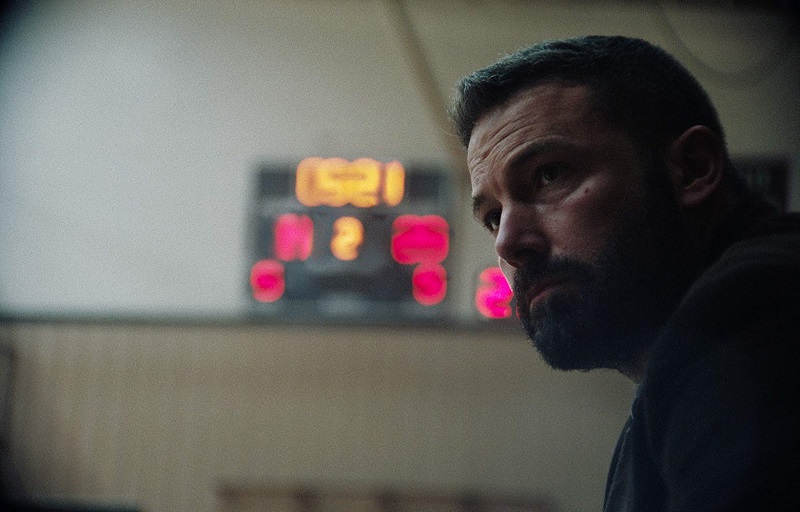
That first scene with Jack and his team, in hindsight, accomplishes so much. Sure, he meets his players and gets to size them up. But in his athletic observations as to their talents and what they’re missing, a roadmap for their improvement is subtly set in motion. It is a stroke of storytelling genius. One can almost see who Cunningham believes is the best player on the team, even if that has not been established previously. That player … earns it as well. There’s also a familial element to these high school kids that is immaculately captured. These are teenagers, and yes, their peers are an enormous influence on who they are and who they are aspiring to be. But, believe it or not, their parents still play an enormous role and it was fascinating to witness how certain players’ families react to Jack and his aspiring belief in their child. It is, again, raw and real.
Elevating the material (which is already sublime) is Affleck, who turns in one of his best performances as an actor to date. It must have been simultaneously cathartic and supremely challenging for the actor to embody someone who is grappling with alcohol issues. In the midst of recovery himself, as a viewer keenly aware of his demons, it was difficult to witness those scenes where he was drinking, especially when he was drinking to excess. At the same time, it was internally triumphant to experience Jack try to take control of his life and specifically how this team, not simply the art of coaching, but the individual relationships he forged with his players and how he elevated their lives and most importantly, how they are influencing his.
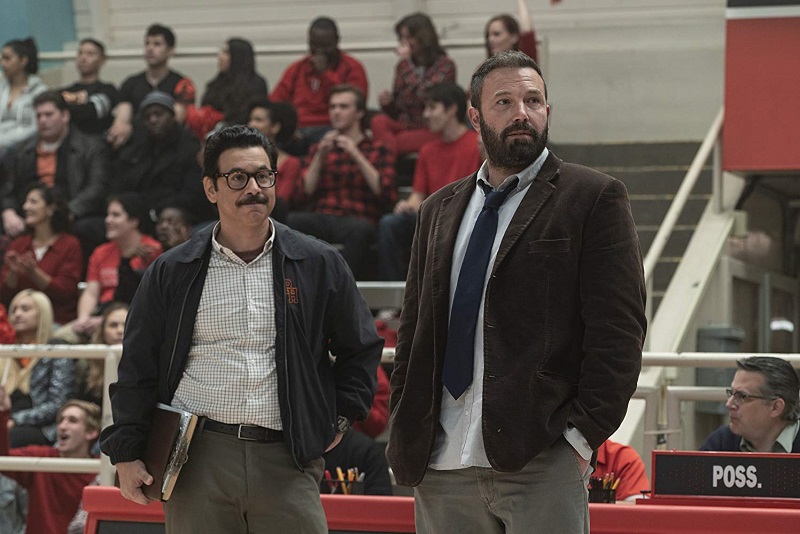
A supporting actor that deserves some serious praise is Al Madrigal and his role as assistant coach, simply known as Dan. He was there to show Jack the ropes when he first started and also serves as a steady hand who had to lay down the law when it came to the school and their rules—particularly (and obviously) with drinking and swearing. One thinks that his assistant coach will bend over backwards for this guy who he clearly looked up to as a freshman when Jack was a senior. But again, as reality would have it, when it comes to the welfare of the young men who comprise this team, Dan’s devotion is to them and the school, and Jack last. There are some hard lessons to be learned in The Way Back, many times where one would least expect it. That is the best when a film can achieve that, and the viewer does not see it coming.
From the sports film point of view, this may seem like a story that has been told before. You know … they appear, on the outside, to be talent-less team who then overachieves. That is not what this high school basketball team accomplishes. There are ebbs and flows to their season, as would really happen—especially with a volatile coach working on some issues that include some delicately handled tragedy that one could say was the trigger for Jack’s alcoholism to become all-consuming. At the end of the day, basketball is just a game. But as O’Connor so impeccably captures with his latest sports film, games are landscapes where one’s true self can be tested, and a soul can reach deeply and discover aspects about oneself that never would have revealed itself otherwise. The director also gave us the 1980 US Hockey Team true tale Miracle and the Tom Hardy MMA-based stunner Warrior. In each of his films, the storyteller manages to paint the athletic aspects as supremely inspiring, all the while hitting all those emotive buttons brilliantly that remind us again and again why we adore the sports movie (when it’s done right).
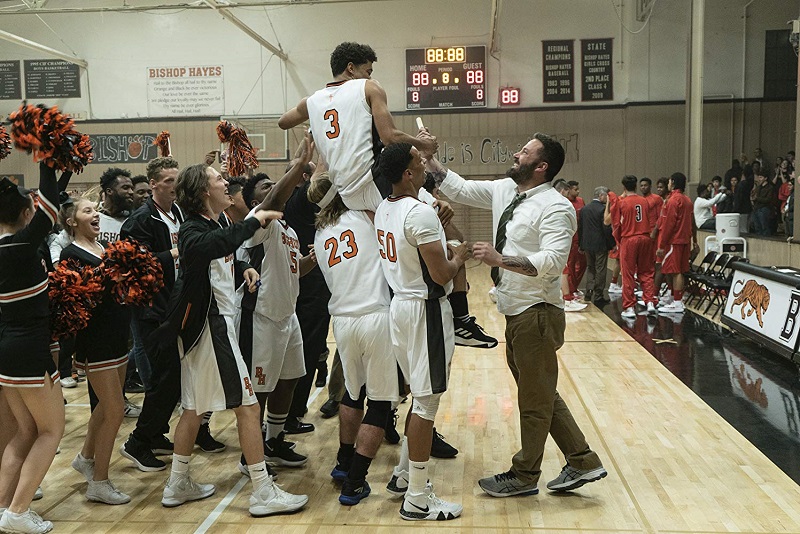
There is something that The Way Back could use and that’s a wee bit of tightening. On the surface, it appears that the film doesn’t quite know how to wrap itself up. Yet by the time one works through this particular section of the film towards the end, you realize that this “extra lap” is for all the right reasons. It just sadly, takes the audience out of the film for the briefest of moments. Then, it’s back to inspiring, invigorating, enlightening and above all else … entertaining.
Grade: B+

